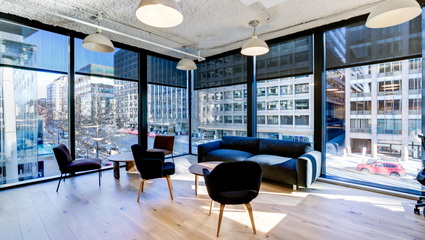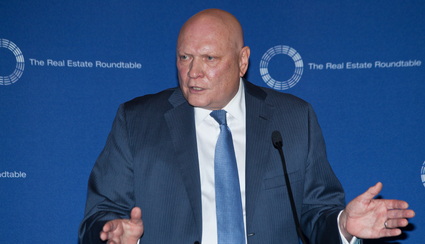
Overall workplace occupancy registered 49.1% last week, according to Kastle’s 10-city Back to Work Barometer, which showed return to office rates vary significantly over the course of the week. Additionally, a recent Department of Labor American Time Use Survey showed that nearly 35% of Americans worked from home on an average day in 2022, down from nearly 40% in 2021. (Axios, June 23)
Public Sector
- In the public sector, federal government offices remain largely unoccupied, according to a new report issued by the Government Accountability Office (GAO) that revealed most agencies are using their headquarters less than a quarter of the time.
- The GAO report shows that 17 of 24 agencies' buildings were at 25% capacity or less after an analysis of 21.5 million square feet (SF) of usable federal office space during three weeks of Q1.
- The empty federal offices have depressed local economies, according to a July 18 Federal News Network (FNN) broadcast. (Listen or read transcript of Federal Drive with Tom Temin)
- The House Subcommittee on Economic Development, Public Buildings, and Emergency Management addressed the GSA report in a July 13 hearing called “When the Lights Are On but No One’s Home: An Examination of Federal Office Space Utilization”)
Roundtable Response

- In April, The Real Estate Roundtable wrote to members of the Senate about the need the federal government to end its “active encouragement of remote working for federal employees” and for federal agencies to return to their pre-pandemic workplace practices. (RER letter to the Senate, April 12)
- Roundtable President and CEO Jeffrey DeBoer, above, sent a similar request to President Biden last December, noting that federal telework polices were ignoring “the negative impacts of remote work on cities and communities, labor productivity, and U.S. economic competitiveness, as well as the quality of government services.” (Commercial Observer, April 14 and RER letter to President Biden, Dec. 12, 2022).
A study released in May by New York University and Columbia University researchers shows how the disruption from remote work could impact municipalities. “The fiscal hole left by declining office and retail property tax revenues would need to be plugged by raising tax rates or cutting government spending. Both would affect the attractiveness of the city as a place of residence and work.” (Work From Home and the Office Real Estate Apocalypse, May 15 and Roundtable Weekly, May 26)
# # #

